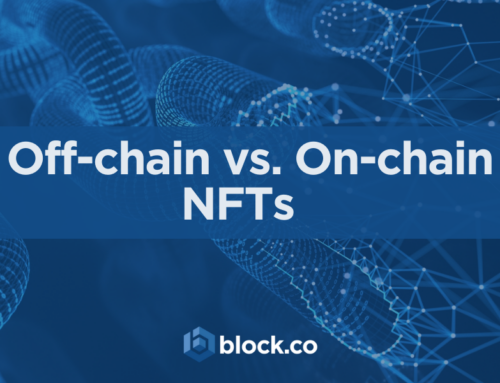Blockchain Use Cases in the Oil and Gas Industry

The oil and gas industry, like any other, has intermediaries, manual operations, and associated costs. Automation of such processes within the company and between contractors is the main goal of all services and departments. Blockchain technology, in turn, offers the oil and gas industry new opportunities to solve financial, trade, and logistic problems. Using a distributed ledger can help create a single trusted space between counterparties, while smart contracts automate some of the functions. In 2018, large companies such as BP, Shell, Gazprom, Statoil, and Repsol launched pilot projects that were built using blockchain. Today, we will focus on some of the crucial blockchain use cases in this industry.
1.Digitizing Crude Oil Transactions
One of the most prominent blockchain oil and gas use cases is the digitization process of crude oil transactions. Crude oil is one of the most economically important commodities in the market at the moment. Companies that trade oil, diesel and gasoline employ customized systems to track, organize, and record data. These commodity tracking systems use a variety of complex and segregated ledgers. Moreover, they are centralized systems that are difficult to maintain and costly to operate, as well as being vulnerable to manipulation, hacking, and corruption.
The use of blockchain technology in the oil and gas commodities market has the potential to lower the costs of managing, upgrading, and protecting a proprietary trading system. It can lower labour expenses, data management costs, data visualization expenditures, transaction delays and dispute resolution costs. An oil and gas trading company may build a platform on top of a well-known blockchain like Ethereum but include privacy and access limitations in the coding. Transportation data can be accessible and transparent to permissioned parties such as regulators if requested.
2. Better Management
Implementing smart contracts in the oil and gas industry is very beneficial as this increases the transparency of logistic processes, automates the tax payment procedure, as well as reducing the costs of oil and gas companies by more than 40%. Corporations such as BP, Equinor, Shell and Mercuria are already cutting costs using blockchain.
3. Tracking Carbon Footprint
Reducing costs and improving cleaner working practices are at the top of the oil companies’ list of priorities, and blockchain offers them a way to do it. Unlike existing valuation methods, blockchain technology can accurately estimate the carbon footprint of an oil field project as well as estimating its carbon footprint. Thus, the accuracy provided by blockchain would allow for better certification processes in the future, as regulators insist on stricter standards when it comes to carbon emissions. Moreover, understanding the current carbon footprint of a project will enable companies to be more transparent and work to improve environmental practices.
4. Improved Pipeline Inspection
Because of the huge and complex nature of the oil and gas industry, the process may involve long and complicated contracts for all parties. Smart contracts can greatly reduce paperwork, simplify the process, improve efficiency, and save costs. Pipeline inspections need a good amount of coordination from regional companies. As in many cases, the companies have to show the inspection information or get a certification based on the data in order to prove a correct inspection has been undertaken and to create a relationship of trust between the parties. These certifications can be forged. Smart contracts can be a solution to this problem.
5. Error Reduction
The oil industry uses oil ticketing certification standards when it comes to maintaining data. As implied by the phrase, paper ticketing is carried out by personnel or individuals.
These paper tickets might also be subject to human errors or simple mistyping. Typically, error rates range between 25 and 30%. Overall, human error results in a large number of reconciliation operations which are time-consuming and cost money. Human mistake is not completely eliminated by blockchain technology; someone may still enter an alphanumeric number wrongly into a blockchain network. However, because of the technology’s general data openness, the records of these failures are clearer. As a result, reconciliation processes are simpler, less expensive, less time-consuming.
The use of blockchain will bring significant benefits to companies in the oil and gas industry in the future. Blockchain technologies will enable fast, controlled, immutable, transparent and auditable B2B transactions between network participants and their suppliers, distributors and partners. Overall, the transition to blockchain technology in the oil and gas industry will help to fundamentally change the nature of business relationships in companies around the world and bring tangible benefits to everyone involved in the supply chain.
Would you like to be pioneers in utilising blockchain technology in the oil and gas industry? Contact us and Block.co will assist you in the best way!
If your brand is ready to take the step into web 3.0 and NFT marketing, to optimize engagement with your audience in innovative ways, then click the button below to get your Free Trial, a limited number of Free NFTs, and a Free Consultation call from our team!
For more info on blockchain use in the oil and gas industry, contact Block.co directly or email at enquiries@block.co.
Tel +357 70007828
Get the latest from Block.co, like and follow us on social media:







